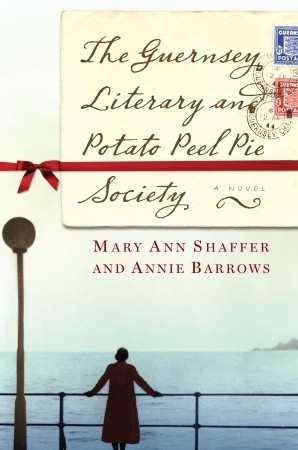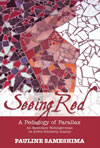As I contemplate the various ways to write, the multitude of containers in which to capture writing, and the many intentions and approaches we might employ, I can't help but consider the versatility of the letter.
In this age of texting, instant messaging, and emails and other casual modes of communication, we may consider the letter an old fashioned way to connect.
But if we think beyond our digital and electronic experiences, we realize that letters actually rule more of our lives than we may want to acknowledge-- coming often, heralding, both good news and bad, providing valuable information and sometimes confusing instructions-- and every now and then, giving a dire warning of some sort.
The notices to renew our publications, reminders of doctor appointments, contracts to be signed, actions to be taken, upcoming entertainment in which to partake, updates on your far away friends and family, invitations, thank yous, and advertisements..... and my biggest hope-- a letter from Publishers Clearinghouse saying I have won millions. All of these and more come to us in the form of letters.
Beyond letters as everyday life and practicalities, I love literature and other creative texts written in the epistolary form.
Epistolary novel The Color Purple by Alice Walker leads into the lives of Celie, her sister, and Mister through Celie's poignant letters. The Guernsey Literary and Potato Peel Pie Society by Mary Ann Schaffer and Annie Barrows, also an epistolary novel, is a wonderful tale of the island of Guernsey during the German occupation, and of a society book lovers as extraordinary as its name.


The possibilities of the epistolary novel are endless. It always amazes me how a story can be woven through the letters and result in as rich an experience as traditionally structured novels.
The epistolary form has been important in other forms of literature. Poets have penned epistolary poems, and writers have traditionally written personal letters about their work.
Click here to read samples such letters and poems, as well as more about epistolary forms. at Poets.Org
In an entirely different realm of composition, letters can be effectively and creatively used to record and report academic work
 Earlier this year I read and thoroughly enjoyed a rather uniquely written dissertation, Seeing Red-- A Pedagogy of Parallax: An Epistolary Bildungsroman on Artful Scholarly Inquiry by Pauline Sameshima. In this epistolary novel, doctoral student Julia, writes letters, sometimes subtly steamy, to her advisor, Red. Woven into those letters, are also her theories and research about teacher education, as well as the mosaics she creates, and bits about her life outside of her studies.
Earlier this year I read and thoroughly enjoyed a rather uniquely written dissertation, Seeing Red-- A Pedagogy of Parallax: An Epistolary Bildungsroman on Artful Scholarly Inquiry by Pauline Sameshima. In this epistolary novel, doctoral student Julia, writes letters, sometimes subtly steamy, to her advisor, Red. Woven into those letters, are also her theories and research about teacher education, as well as the mosaics she creates, and bits about her life outside of her studies.
Speaking of world - renowned Brazilian education scholar Paulo Friere, his widow, Ana Maria Araujo Friere notes his affinity for letters:
Beyond letters as everyday life and practicalities, I love literature and other creative texts written in the epistolary form.
Epistolary novel The Color Purple by Alice Walker leads into the lives of Celie, her sister, and Mister through Celie's poignant letters. The Guernsey Literary and Potato Peel Pie Society by Mary Ann Schaffer and Annie Barrows, also an epistolary novel, is a wonderful tale of the island of Guernsey during the German occupation, and of a society book lovers as extraordinary as its name.


The possibilities of the epistolary novel are endless. It always amazes me how a story can be woven through the letters and result in as rich an experience as traditionally structured novels.
The epistolary form has been important in other forms of literature. Poets have penned epistolary poems, and writers have traditionally written personal letters about their work.
Click here to read samples such letters and poems, as well as more about epistolary forms. at Poets.Org
In an entirely different realm of composition, letters can be effectively and creatively used to record and report academic work
Speaking of world - renowned Brazilian education scholar Paulo Friere, his widow, Ana Maria Araujo Friere notes his affinity for letters:
... Paulo liked (letter as a communication form) so much because he believed it was a way to better dialogue with readers. Through letters one could more truthfully and easily reach the very marrow of the heart and reason.
Sonia Nieto required Paulo Friere's books as texts in her courses with teachers and also required letters as a means of engaging in critical dialogue with his ideas and entering into reflection of his work.
Nieto has collected and edited letters written by her students written in this context in Dear Paulo: :Letters from Those Who Dare to Teach, which becomes a perfect partner text to Friere's own epistolary text, Teachers as Cultural Workers: Letters to Those Who Dare to Teach
How can we incorporate letter writing into the educational process?
Can students write letters to the teacher or each other to explore, clarify, define and refine their thinking?
Can they begin a series of letters to document the development, changes and growth in their learning and thinking?
Could these letters in some way become part of a portfolio or be used for in some other manner to evaluate progress?
How else could we use letters?
To whom do you need to write a letter ?
What ideas do you need to explore in epistolary form?
Nieto has collected and edited letters written by her students written in this context in Dear Paulo: :Letters from Those Who Dare to Teach, which becomes a perfect partner text to Friere's own epistolary text, Teachers as Cultural Workers: Letters to Those Who Dare to Teach
How can we incorporate letter writing into the educational process?
Can students write letters to the teacher or each other to explore, clarify, define and refine their thinking?
Can they begin a series of letters to document the development, changes and growth in their learning and thinking?
Could these letters in some way become part of a portfolio or be used for in some other manner to evaluate progress?
How else could we use letters?
To whom do you need to write a letter ?
What ideas do you need to explore in epistolary form?
Wishing You Deeper Writing,
robin
robin
Today's Deeper Writing Possibility
Consider the possibilities for the letter in your personal life. To whom do you want or need to to write a letter?
How will this form enhance your communication? How might it hinder your communication?
Consider academic or professional-related ideas with which you have recently been engaged.
How can you explore these ideas in letter form?
How will this form enhance your exploration? How might it hinder you exploration?
Write your letters and, if appropriate, actually mail them.
How will this form enhance your communication? How might it hinder your communication?
Consider academic or professional-related ideas with which you have recently been engaged.
How can you explore these ideas in letter form?
How will this form enhance your exploration? How might it hinder you exploration?
Write your letters and, if appropriate, actually mail them.


No comments:
Post a Comment